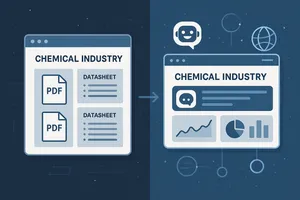15 Best Tools for Creating PHP Websites
7 mins | 11 Sept 2023

Table of Contents
1. Introduction
2. Top 15 Tools for Building Websites with PHP
3. Conclusion
Introduction
Have you started learning PHP? It's a fantastic language for developing websites. But do you know what? You'll need more tools to get the most out of PHP and construct beautiful websites. These tools make web development more accessible and powerful.
Keep in mind that these tools are your key to web development. They help you write code, find mistakes, and manage your projects. If you love making websites using PHP, these tools can be a career changer.
In this blog, we will dive into the world of PHP web development tools and check out the 15 best ones. If you're a pro at PHP or starting, these tools will make your life easier. We'll examine what each device can do and how it can help you make excellent websites.
So, stick around! In this blog, We will explore tools that can make your PHP web development journey smoother.
Top 15 Tools for Building Websites with PHP
1. Laravel:
Laravel is a pinnacle among PHP web development tools, empowering developers to craft stunning websites with finesse. This open-source framework streamlines the web development process, offering features like elegant syntax, MVC architecture, and pre-built functionalities.
As a top choice for beginners and experienced developers, Laravel enables efficient website development in PHP. Its rich ecosystem and built-in tools make it the best web development tool for creating robust and scalable applications.
Pros:
- Elegant syntax and clear documentation streamline development.
- Robust ecosystem with built-in tools like ORM, authentication, and routing.
- Active community and regular updates ensure continuous improvement.
Cons:
- The learning curve for beginners is due to its extensive features.
- Heavier compared to micro-frameworks, potentially affecting performance.
- Limited customization for certain advanced functionalities.
This web development tool's extensive features may be challenging for beginners, heavier than micro-frameworks, and limit customization options for advanced functionalities.
2. CodeIgniter:
CodeIgniter is a useful tool for quickly building PHP websites. It's not heavy but still very strong. It makes it easy to create websites that change a lot by using its special structure and many tools.
People who make websites like it because it's easy to use and helps them make websites in PHP that work well and fast. CodeIgniter's flexibility and easy-to-use web design make it a top pick for building PHP websites.
Pros:
- Lightweight and easy to learn, ideal for beginners.
- MVC architecture promotes structured development.
- High performance due to minimal system requirements.
Cons:
- Limited built-in features compared to larger frameworks.
- Smaller community and fewer third-party packages.
- It may require more manual configuration for complex projects.
CodeIgniter's lightness might not be the best for big projects because it has a smaller group of users and might have less help available. This means you have to set up complicated tasks by yourself.
Further Read: Analyze your website with these tools
3. Symfony:
Symfony excels as a comprehensive PHP framework suitable for large-scale web projects. Its modular components and elegant architecture streamline development, offering high flexibility and reusability.
It empowers PHP web development services developers with the tools to create robust applications while adhering to best practices. It's one of the best PHP web development tools for crafting complex and feature-rich websites.
Pros:
- Highly customizable with a modular structure.
- A rich set of reusable components accelerates development.
- Suitable for large-scale, enterprise-level applications.
Cons:
- Steeper learning curve due to its complexity.
- Initial setup and configuration can be time-consuming.
- Larger memory footprint compared to some other frameworks.
Even though learning Laravel might be tough and not as fast or good for big projects, it has lots of instructions, a big community of helpers, and uses more computer memory.
4. Laminas Project:
Once called Zend Framework, the Laminas Project is a bunch of PHP tools that make web development in PHP easier. It's like having building blocks you can choose and use for your project, making it just right for what you need. Laminas is a flexible set of tools for creating websites that can change a lot, giving developers the necessary things to build great sites.
Pros:
- Highly modular, allowing developers to choose components as needed.
- Adaptable to various project sizes and requirements.
- Offers a good balance between simplicity and flexibility.
Cons:
- Documentation can be less comprehensive than other frameworks.
- Smaller community compared to more popular options.
- It might require more effort to integrate specific components.
The community might be small, but it's very helpful and always there to help. They provide tools for different things to work together with plugins and add-ons, so you don't have to do all the hard work yourself.
5. CakePHP:
CakePHP stands out as an easy-to-use tool for making websites in PHP quickly and easily. It follows a "set way" of doing things so developers can make strong apps without a complicated setup. The framework is smartly designed and includes security features, making it an excellent choice for PHP web developers looking to build websites efficiently.
Pros:
- Highly modular, allowing developers to choose components as needed.
- Adaptable to various project sizes and requirements.
- Offers a good balance between simplicity and flexibility.
Cons:
- Documentation can be less comprehensive than other frameworks.
- Smaller community compared to more popular options.
- It might require more effort to integrate specific components.
This framework focuses on making websites load faster and work well with common databases and external libraries. This improves the whole development process.
Further Read: Tools For Web Development
6. Phalcon:
Phalcon boasts of being one of the fastest PHP frameworks due to its C-extension architecture. This tool accelerates website development in PHP, offering impressive performance gains. Phalcon's features cater to developers seeking to optimize their web applications' speed and efficiency.
Pros:
- Exceptional performance due to its C-extension architecture.
- Rich feature set, including asset management and caching.
- Low overhead and efficient resource utilization.
Cons:
- The extension requires compiling, making updates potentially cumbersome.
- Smaller community compared to more established frameworks.
- Steeper learning curve due to unique architecture.
The framework provides extra security for web applications, making organizing and delivering files easier and improving the overall development process.
7. Lumen:
Like a close relative of Laravel, Lumen is great for developers who want to make small-scale apps or microservices. It's a top pick for creating quick and light PHP web apps. Lumen is all about making web development efficient.
Pros:
- Designed explicitly for microservices and smaller projects.
- Faster performance compared to full-stack frameworks.
- Inherits elegance and simplicity from Laravel.
Cons:
- Limited built-in features compared to Laravel.
- Not suitable for larger or more complex applications.
- Some Laravel features are excluded to maintain a lightweight nature.
Lumen is ideal for speedy, lightweight applications. But may not be suitable for complex projects requiring Laravel's built-in features.
8. Fat-Free Framework:
As its name suggests, the Fat-Free Framework is a small but strong set of PHP tools for web development. It focuses on being simple while offering important features. This makes it a good option for developers who want an easy and efficient way to work on their PHP web projects.
Pros:
- Extremely lightweight and minimalistic.
- Rapid development with concise syntax.
- Ideal for small projects or when a micro-framework is desired.
Cons:
- Limited built-in features compared to larger frameworks.
- Less suitable for complex projects requiring extensive features.
- Smaller communities and fewer resources are available.
The framework's simplicity and efficiency might need to be improved for experienced developers. Also, because it has a smaller community, finding support or documentation for specific problems can take time and effort.
Further Reading: Build you website with these amzing AI tools
9. PHPStorm:
PHPStorm, designed specifically for PHP developers. It provides numerous tools to boost productivity and make development smoother. It includes code analysis, debugging features, and seamless integration. This makes it a must-have for developers who want to create top-notch PHP websites.
Pros:
- Feature-rich IDE tailored for PHP development.
- Robust code analysis and debugging tools.
- Seamless integration with popular version control systems.
Cons:
- Paid software is expensive for some developers.
- Heavier in terms of system requirements compared to other IDEs.
- The learning curve for new users is due to the abundance of features.
PHPStorm is a paid program, but you can try it for free for 30 days. It has strong features and works well with version control systems, making it a great option for serious PHP development projects.
10. Apache NetBeans:
Apache NetBeans is a free software that helps with many programming languages, including PHP. It has many useful features, an easy-to-use design, and strong tools for finding and fixing problems. Apache NetBeans is a great help for PHP web developers who want to code efficiently and manage their projects well.
Pros:
- Free and open-source IDE with broad language support.
- User-friendly interface and efficient code editing features.
- Debugging solid capabilities for PHP developers.
Cons:
- Less specialized for PHP compared to other dedicated IDEs.
- Fewer PHP-specific features compared to some other tools.
- Slower performance on larger projects.
Apache NetBeans makes it easier to work together and keep track of PHP projects. However, it needs some advanced features and can be slower when dealing with big projects because it supports many languages.
11. Zend Studio:
Zend Studio is a special program for PHP web development. It comes with tools that help you code better, fix problems, and manage your projects. Because it's closely connected with the Zend framework, it's the top choice for developers working on tricky PHP web apps.
Pros:
- Dedicated IDE for PHP development, specializing in Zend Framework.
- Rich feature set, including debugging, profiling, and deployment tools.
- Strong integration with the Zend ecosystem.
Cons:
- Paid software is expensive for some developers.
- Focused on Zend Framework might be less suitable for other frameworks.
- The learning curve for new users, especially those new to Zend.
The Zend framework is a robust platform for PHP web application development, but its cost and learning curve may need to be revised for budget-conscious developers and beginners.
Further Read: Best AI Tools for Video Editing
12. XAMPP:
XAMPP simplifies PHP web development by providing a local development environment. With an integrated web server, database, and scripting languages, XAMPP enables developers to build and test websites locally before deployment. It's an indispensable tool for PHP web developers seeking a hassle-free setup.
Pros:
- Simplifies local development environment setup.
- Bundles essential components like web server and database.
- Suitable for testing and debugging PHP web applications offline.
Cons:
- It is not intended for production environments.
- Limited configuration options compared to manually set up servers.
- It can be resource-intensive, impacting system performance.
XAMPP is a local development environment that enables developers to replicate production environments on their machines, ensuring proper functionality during deployment.
13. PHPUnit:
PHPUnit is a crucial tool for PHP developers. It helps to ensure the quality and trustworthiness of PHP web apps by finding and fixing problems during development.
PHPUnit lets developers create tests for their PHP code.
So they can make sure every part of their app works correctly. It saves time and effort by doing tests automatically, letting developers concentrate on making great code.
Pros:
- Robust unit testing framework for ensuring code quality.
- Simplifies the process of writing and running tests.
- Integrates well with various PHP frameworks.
Cons:
- The learning curve for beginners new to unit testing.
- Requires dedicated time and effort to implement tests effectively.
- Focusing solely on unit tests might overlook higher-level issues.
PHPUnit offers comprehensive documentation, user support, and easy integration with continuous integration tools for automated testing in development workflows. However, it's recommended to complement unit testing with other testing methods for overall code quality.
14. Codelobser:
Codelobser makes it easy for PHP web developers to work together and review code. It helps keep the code good, finds bugs, and improves teamwork, leading to top-notch web projects.
Using Codelobser, PHP web developers can speed up code reviews and give feedback, making the process smoother and faster. It also has cool features like automated testing and version control, which makes the whole development process even better.
Pros:
- Simplifies code review process and collaboration.
- Detects bugs and potential issues, improving code quality.
- Facilitates efficient teamwork and better communication.
Cons:
- It requires additional training for teams unfamiliar with code review tools.
- Dependency on external services may raise security concerns.
- Some features might need to be more varied for smaller development teams.
Automated testing and version control integration streamline software release processes, ensuring stable, error-free code deployment, but may require an initial investment in time and resources.
Further Read: Best Web Application Development Software
15. XdeBug:
XdeBug stands out as a potent debugging tool designed for PHP developers. It provides deep insights into how code runs, making it easier for developers to find and fix errors. For PHP web developers aiming to craft flawless websites, XdeBug is a must-have.
It is an easy-to-use interface. It also simplifies the debugging process by enabling developers to identify problems in their code. Furthermore, XdeBug offers real-time tracking of variables and function calls. It simplifies the task of finding and solving bugs.
Pros:
- Powerful debugging tool for PHP developers.
- Provides deep insights into code execution and errors.
- Helps identify and resolve issues efficiently.
Cons:
- The learning curve for mastering all of its features.
- It may only be necessary for some developers or projects.
- Potential performance overhead during debugging sessions.
XdeBug has a learning curve for developers, may only be necessary for some projects due to complexity, and may cause performance overhead during debugging sessions, which could impact overall efficiency.
Conclusion
These top 15 tools can make your journey into PHP web development much easier and more powerful. It doesn't matter if you're starting out or already experienced – these tools are like helpful friends that make coding, finding mistakes, and managing projects much smoother. As you explore the world of PHP, these tools are there to make you better at what you do and help you create cool websites.
These essential tools are like your partners in PHP web development. They're like guides that walk with you as you write code, find and fix problems, and handle your projects.
Whether using strong frameworks like Laravel and CodeIgniter or specialized programs like PHPStorm and Zend Studio, these tools have features matching different needs. You'll become good at PHP web development by using these tools well. This will help you make functional websites and ones that look great and work well.
Author

Share
Share
Related

Your Website is Invisible to AI - Here's the 7 Pillar Fix (2026 Guide)
10 mins : 18 Feb 2026

Frictionless Checkout: Why Simplicity Wins Every Time?
5 mins : 18 Sept 2025

The Future of Chemical Websites: AI, Automation, and Smarter Buyer Journeys
7 mins : 10 Sept 2025










